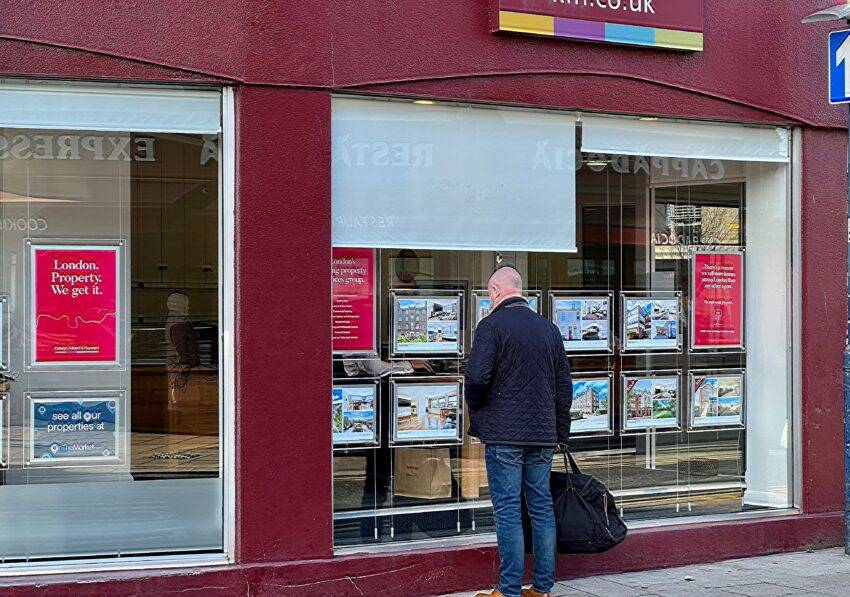UK house prices record fastest monthly rise of 2025


The UK housing market recorded its fastest monthly growth of the year in July, with prices rising by 0.4% according to the latest figures from Halifax.
The increase, which exceeded economists’ expectations of 0.3%, highlights the market’s resilience in the face of persistent cost-of-living pressures and recent tax changes.
On an annual basis, prices were 2.4% higher than in July 2024, reaching an average of £298,237. The pace of annual growth was slightly slower than the 2.7% increase recorded in June, but the figures are in line with those from rival lender Nationwide, which last week reported a 0.6% monthly rise for July.
The market appears to have stabilised following a rush of transactions earlier in the year, as buyers moved quickly to beat changes to stamp duty thresholds that came into effect in April. The adjustments, announced in Labour’s October 2024 budget, reduced the point at which the tax applies from £250,000 to £125,000 for most buyers, and from £425,000 to £300,000 for first-time buyers.
Amanda Bryden, head of mortgages at Halifax, said she expected house prices to follow a steady path of modest gains through the remainder of the year. She noted that while challenges remain for those looking to move up or onto the property ladder, mortgage rates continue to ease, wages are still rising, and affordability is gradually improving. Combined with more flexible affordability assessments now in place, she said, the result is a housing market that “continues to show resilience, with activity levels holding up well.”
Official figures support the picture of a market maintaining momentum. Data from HM Revenue and Customs showed that the number of seasonally adjusted residential property sales rose by 13.4% in June to 93,530 transactions. Bank of England statistics also revealed a 1.4% increase in mortgage approvals for house purchases during the month, taking the total to 64,167.
Bryden added that the second half of the year would see a notable number of homeowners coming to the end of fixed-rate mortgage deals agreed during the pandemic-era housing boom. Those on two-year fixes from the period following the 2022 mini-budget are likely to see their monthly payments fall, she said, while many on five-year fixed rates will face increases, though the scale of these rises will vary between households.
This week’s decision by the Bank of England to cut its base rate to 4% from 4.25% — the fifth reduction in a year — is expected to improve mortgage affordability further. However, the scope for additional cuts remains uncertain given persistent inflationary pressures and signs of a cooling jobs market.
Price growth continues to vary significantly across the UK. Northern Ireland saw the strongest annual increase, with prices up 9.3% to an average of £213,832. In Scotland, values rose by 4.7% to £125,238, while Welsh property prices increased by 2.7% to £227,928. In England, the North West and Yorkshire & Humber both recorded 4% growth, with average prices of £242,293 and £215,532 respectively. Gains in the south of England were far more muted at less than 1% year-on-year, though London remains the most expensive region, with the average home now costing £539,914.
While the housing market has outperformed many forecasts so far in 2025, its future trajectory will depend on the interplay between interest rate policy, wage growth and the broader economic climate. For now, however, resilient demand, easing mortgage rates and steady transaction volumes are keeping the market moving, even as affordability challenges persist.
Read more:
UK house prices record fastest monthly rise of 2025




















:quality(85):upscale()/2023/09/18/918/n/1922398/a1136b676508baddc752f5.20098216_.jpg)
:quality(85):upscale()/2025/10/09/670/n/1922283/00b944c868e7cf4f7b79b3.95741067_.jpg)
:quality(85):upscale()/2025/10/15/765/n/1922398/29c37a6e68efd84bb02f35.49541188_.jpg)
:quality(85):upscale()/2025/09/09/891/n/1922283/7222624268c08ccba1c9a3.01436482_.png)





















